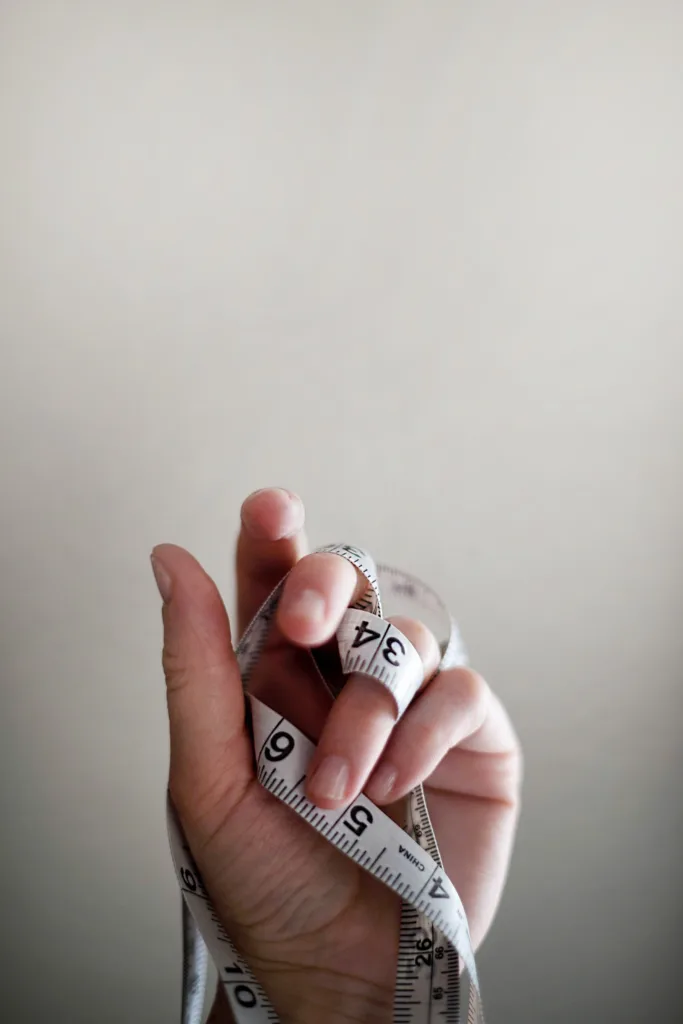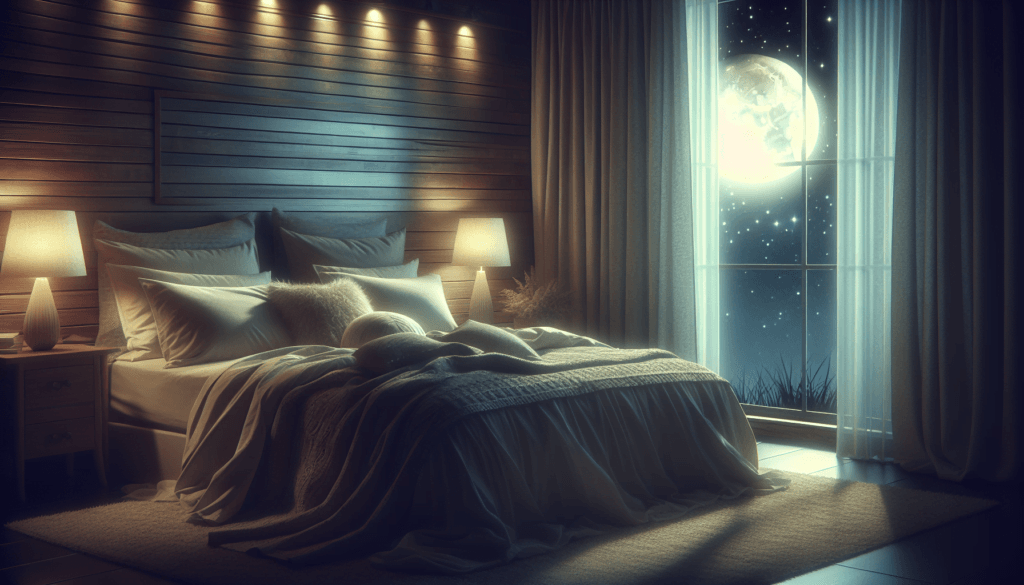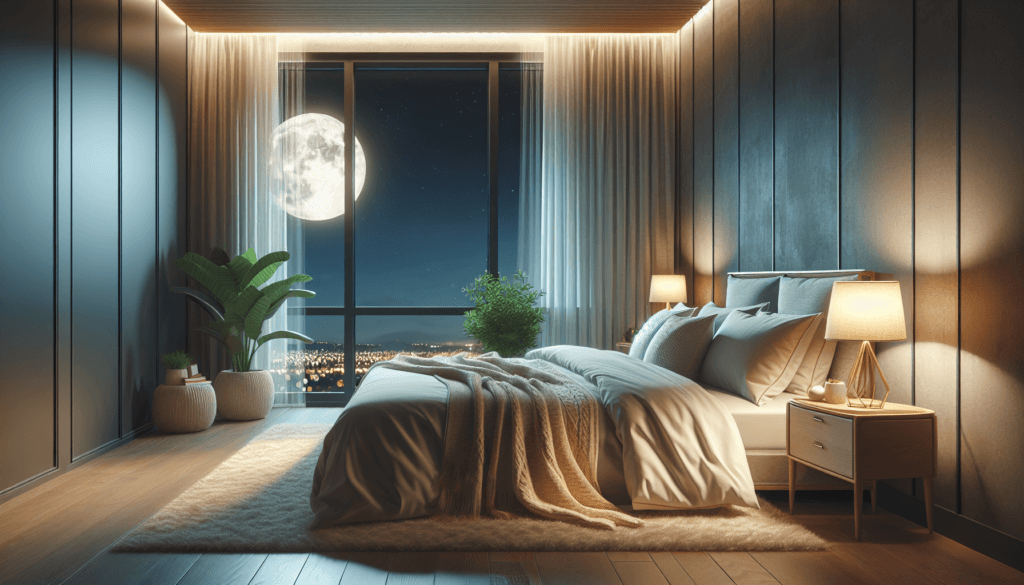In today’s fast-paced world, prioritizing sleep health has become more important than ever. With the advancements in technology, we now have the tools at our disposal to improve our sleep quality and overall well-being. From sleep tracking devices to calming apps, this article explores the various ways in which you can leverage technology to enhance your sleep health. Discover the latest innovations and strategies that can help you achieve a restful night’s sleep and wake up feeling refreshed and rejuvenated.
Table of Contents
Choosing the Right Technology for Better Sleep Health
When it comes to improving your sleep health, technology can be a valuable ally. By leveraging the right technologies, you can create an optimal sleep environment, track and monitor your sleep patterns, manage sleep disruptions, and even develop a healthy bedtime routine. However, with the vast array of sleep technologies available in the market, it can be overwhelming to choose the right ones. This article will guide you through the process of selecting the right technology to enhance your sleep health.
Understanding Different Sleep Technologies
Before diving into the selection process, it’s important to understand the different types of sleep technologies available. These include smart lighting, white noise machines, temperature control devices, sleep tracking wearables, sleep apps, digital assistants, mindfulness and meditation apps, smart mattresses, blue light filters, and sleep sound systems. Each of these technologies has its own unique benefits and features, catering to different aspects of sleep health.
Assessing Your Sleep Needs
The first step in choosing the right technology is to assess your sleep needs. Are you struggling with falling asleep or staying asleep? Do you experience sleep disruptions due to external factors such as light and noise? Are you interested in tracking and analyzing your sleep patterns? Identifying your specific sleep concerns will help you narrow down your options and select the technologies that will have the most significant impact on your sleep health.
Consulting with Sleep Specialists
While technology can be immensely helpful in improving sleep health, it’s always a good idea to consult with sleep specialists, such as sleep doctors or sleep therapists. These professionals can provide valuable insights and recommendations tailored to your individual sleep needs. They can help you understand the underlying causes of your sleep issues and guide you in choosing the right technologies that align with your sleep goals.
Improving Sleep Environment with Technology
Creating an optimal sleep environment is crucial for achieving quality sleep. Technology can play a vital role in enhancing your sleep environment by addressing factors like circadian rhythm, ambient noise, and temperature regulation.
Smart Lighting for Circadian Rhythm
Smart lighting systems, such as those powered by intelligent bulbs or smart switches, can simulate natural light and regulate your body’s internal clock. By gradually dimming the lights in the evening and providing a gentle wake-up light in the morning, these systems can help align your circadian rhythm and promote healthy sleep-wake cycles.
White Noise Machines for Better Sleep
Many people struggle with falling asleep due to background noise. White noise machines produce a consistent sound that helps mask disruptive noises and creates a soothing atmosphere for sleep. These machines offer a variety of sound options, including nature sounds, fan noises, and ambient melodies, allowing you to choose the most relaxing and sleep-inducing sounds for your personal preference.
Temperature Control Devices for Optimal Sleep
Maintaining an optimal sleep temperature is crucial for a good night’s sleep. Temperature control devices, such as smart thermostats or cooling pillows, can help regulate the temperature of your sleep environment. By keeping your bedroom at a comfortable temperature throughout the night, these devices ensure that you don’t get too hot or too cold, allowing you to sleep soundly without disturbances.

Monitoring Sleep Patterns with Wearables
Understanding your sleep patterns is essential for identifying any issues and making improvements. Sleep tracking wearables, such as fitness trackers or smartwatches, can provide valuable insights into your sleep quality, duration, and stages.
Introduction to Sleep Tracking Wearables
Sleep tracking wearables are designed to track your movements and record data while you sleep. They use sensors and algorithms to analyze your sleep patterns, including the amount of time spent in each sleep stage and the number of awakenings throughout the night. This data can help you identify any sleep deficiencies or disruptions, enabling you to make informed decisions about your sleep health.
Popular Sleep Tracking Wearable Brands
There are several popular brands that offer sleep tracking wearables, each with its own unique features and capabilities. Fitbit, Garmin, and Apple are among the leading brands in the market, known for their accuracy and advanced sleep tracking algorithms. When selecting a sleep tracking wearable, consider factors such as battery life, data analysis features, and compatibility with your existing devices.
Features to Consider in Sleep Tracking Wearables
When choosing a sleep tracking wearable, it’s important to consider the features that align with your specific sleep goals. Look for devices that offer detailed sleep analysis, including sleep stages, heart rate variability, and sleep efficiency. Additionally, consider other factors such as comfort, battery life, smartphone compatibility, and any additional functionalities that may be important to you, such as activity tracking or stress management features.
Managing Sleep Disruptions with Apps
Sleep disruptions can have a significant impact on the quality of your sleep. Fortunately, there are numerous sleep apps available that can help you address issues such as insomnia, relaxation, and waking up refreshed.
Top Sleep Apps for Insomnia
Insomnia is a common sleep disorder characterized by difficulty falling asleep or staying asleep. Sleep apps dedicated to addressing insomnia often offer guided meditation exercises, relaxing music, and calming bedtime stories to help you relax and drift off to sleep. Apps like Calm, Headspace, and Sleep Cycle are popular choices for improving sleep quality and reducing insomnia symptoms.
Apps for Relaxation and Stress Reduction
Stress and anxiety can have a detrimental effect on sleep. Luckily, there are apps specifically designed to promote relaxation and reduce stress levels, helping you unwind before bed. These apps often offer features such as breathing exercises, progressive muscle relaxation techniques, and guided imagery sessions to encourage a state of calm and prepare your mind and body for restful sleep. Some notable relaxation apps include Relax Melodies, Pzizz, and Insight Timer.
Smart Alarm Clock Apps to Wake Up Refreshed
Waking up feeling refreshed and energized is crucial for starting your day off right. Smart alarm clock apps utilize sleep tracking technology to determine the optimal wake-up time based on your sleep cycles. By waking you up during a lighter sleep stage, these apps help you avoid the grogginess and fatigue associated with abrupt awakening from deep sleep. Apps like Sleep as Android, Alarmy, and Pillow are popular choices for gentle and refreshing wake-ups.

Creating a Bedtime Routine with Digital Assistants
Establishing a consistent bedtime routine can significantly improve your sleep quality and overall sleep health. Digital assistants, such as Amazon Echo or Google Home, can assist you in creating and maintaining a structured and relaxing routine.
Using Voice-Activated Devices for Sleep Routines
Digital assistants equipped with voice-activated features allow you to control various aspects of your sleep environment without having to physically interact with devices. By simply using voice commands, you can dim the lights, adjust the thermostat, play sleep sounds, or start a guided meditation session, all without having to get out of bed. This hands-free experience promotes relaxation and minimizes disruptions, enhancing your overall sleep routine.
Smart Assistant Features for Better Sleep
In addition to voice control, digital assistants often offer a range of features specifically designed to promote better sleep. These features may include sleep sound libraries, guided meditation programs, sleep music playlists, and ambient noise generation, all aimed at creating a soothing and peaceful atmosphere for sleep. By integrating these features into your bedtime routine, you can optimize your sleep environment and prepare your mind and body for a restful night’s sleep.
Integration with Sleep Monitoring and Management
Many digital assistants can be integrated with sleep tracking wearables or other sleep monitoring devices, allowing you to access and analyze your sleep data from a single platform. This integration enables you to track your progress, identify patterns, and make informed adjustments to your sleep routine based on the data collected. By combining sleep monitoring with the convenience of digital assistants, you can take a holistic approach to managing your sleep health.
Utilizing Mindfulness and Meditation Apps
Mindfulness and meditation have been shown to have numerous benefits for sleep health. By incorporating mindfulness practices into your bedtime routine, you can calm your mind and prepare yourself for a restful night’s sleep.
Benefits of Mindfulness for Sleep
Mindfulness practices involve bringing your attention to the present moment and cultivating a non-judgmental awareness of your thoughts, emotions, and bodily sensations. Regular mindfulness practice has been proven to reduce anxiety, promote relaxation, and improve sleep quality. By shifting your focus away from racing thoughts and stress and towards the present experience, you can create the mental space necessary for a peaceful and undisturbed sleep.
Popular Sleep Meditation Apps
There are several popular sleep meditation apps available that offer a wide variety of guided meditation programs specifically designed to aid in sleep. These apps often provide soothing narrations, calming music, and nature sounds to accompany your meditation practice. Some of the top sleep meditation apps include Headspace, Calm, and Inscape.
Incorporating Meditation into Bedtime Routine
Incorporating meditation into your bedtime routine can be as simple as allocating a few minutes before bed to engage in a guided meditation session. Choose a comfortable position, play a guided meditation from your preferred app, and focus on your breath or the sensations in your body. By consistently practicing meditation as part of your nightly routine, you can create a sense of peacefulness and mental clarity that paves the way for a deep and restorative sleep.

Exploring Smart Mattresses and Sleep Trackers
To gain a comprehensive understanding of your sleep health, it can be beneficial to explore smart mattresses and sleep trackers. These technologies provide valuable insights into your sleep patterns and help you make informed decisions about improving your sleep quality.
Advantages of Smart Mattresses
Smart mattresses are equipped with advanced sensors and technologies that can track your sleep patterns and provide personalized sleep data. They can monitor factors such as sleep duration, movement, heart rate, and even detect snoring. By utilizing a smart mattress, you can gain a deeper understanding of your sleep quality and uncover potential areas for improvement.
Features to Look for in Sleep Trackers
When choosing a sleep tracker, there are several features to consider. Look for trackers that offer comprehensive sleep analysis, including sleep stages, heart rate variability, and respiratory rate. Some sleep trackers also provide personalized recommendations and suggestions based on your sleep data. Additionally, consider factors such as battery life, comfort, ease of use, and compatibility with your existing devices.
Connecting Smart Mattresses with Other Sleep Technology
Smart mattresses often come with the capability to integrate with other sleep technologies, such as sleep apps or sleep tracking wearables. This integration allows for a seamless flow of data between devices, providing a more holistic view of your sleep health. By combining the data from your smart mattress with that from other sleep technologies, you can have a comprehensive understanding of your sleep patterns and make informed decisions about optimizing your sleep environment and routine.
Using Blue Light Filters for Nighttime Tech Use
The use of electronic devices before bed has become increasingly common, but the blue light emitted by these devices can disrupt your sleep-wake cycle. Blue light filters can help mitigate the negative effects of blue light and promote better sleep.
Negative Effects of Blue Light on Sleep
Blue light, which is emitted by electronic devices such as smartphones, tablets, and laptops, can interfere with your natural sleep-wake cycle, also known as the circadian rhythm. Exposure to blue light in the evening hours can suppress the production of melatonin, a hormone that regulates sleep. This disruption can make it more difficult to fall asleep and lead to poor sleep quality.
Types of Blue Light Filters
There are various types of blue light filters available that can be applied to electronic devices. Some devices have built-in blue light filter settings that can be manually enabled, while others may require the installation of a separate application or the use of blue light filter glasses. Additionally, there are screen protectors available that are specifically designed to block blue light from electronic devices. By utilizing blue light filters, you can reduce the impact of blue light on your sleep and preserve your natural sleep-wake cycle.
Applying Blue Light Filters on Devices
To apply a blue light filter on your devices, start by adjusting the display settings. Many smartphones and computers have a built-in blue light filter or a night mode feature that can be activated. These settings usually allow you to customize the intensity of the filter or set a specific schedule for automatic activation. If your device does not have a built-in filter, you can install third-party applications that offer similar functionalities. Additionally, using blue light filter screens or wearing blue light filter glasses can further reduce your exposure to blue light during nighttime tech use.

Employing Sleep Sound Systems for Relaxation
Sleep sound systems can create a soothing and tranquil sleep environment, helping you relax and unwind before bed. These systems offer a variety of sleep sounds that promote relaxation and mask disruptive noises.
Benefits of Sleep Sound Systems
Sleep sound systems provide numerous benefits for sleep health. They can help drown out noises that may disturb your sleep, such as snoring, traffic, or noisy neighbors. Additionally, sleep sounds can create a consistent and calming background noise that lulls you into a state of relaxation and prepares your mind for sleep. By using sleep sound systems, you can enjoy a peaceful and uninterrupted slumber.
Different Types of Sleep Sounds
Sleep sound systems offer a wide range of sounds to choose from, allowing you to customize your sleep environment based on your preferences. Common sleep sounds include nature sounds like rainfall, ocean waves, or birdsong, as well as white noise, pink noise, or brown noise. Some systems even offer guided sleep meditations or calming bedtime stories. Experiment with different sounds to find the ones that most effectively induce relaxation and promote restful sleep.
Choosing the Right Sleep Sound System
When selecting a sleep sound system, consider factors such as sound quality, sound selection, ease of use, and additional features. Look for systems that offer a variety of high-quality sounds, as well as the ability to adjust the volume and sound duration. Some sleep sound systems also come with timers or automatic shut-off features, allowing you to set a specific duration for the sounds to play before gradually fading out. Finding a sleep sound system that meets your individual preferences and needs can greatly enhance your bedtime routine.
Developing Healthy Screen Time Habits
Excessive screen time, especially before bed, can negatively impact your sleep health. By developing healthy screen time habits, you can minimize the adverse effects and improve your sleep quality.
Effects of Screen Time on Sleep
The blue light emitted by screens is not the only factor that can disrupt your sleep. Engaging in stimulating activities, such as browsing social media, playing video games, or watching intense television shows, can also make it more difficult to unwind and fall asleep. Additionally, the content consumed through screens can evoke strong emotional responses or stress, further impacting the quality of your sleep.
Setting Limits on Screen Time
Setting limits on screen time can help you establish a healthier balance between your digital life and sleep. Set specific boundaries, such as avoiding screens at least one hour before bed, or designating certain times of the day as screen-free periods. It can be helpful to create a screen time schedule and stick to it consistently. By reducing your exposure to screens before bed, you can promote relaxation and improve your ability to fall asleep naturally.
Practicing Digital Detox Before Bed
Engaging in a digital detox before bed can be highly beneficial for your sleep health. Instead of spending the evening hours scrolling through social media or watching television, engage in activities that promote relaxation and prepare you for sleep. This can include reading a book, taking a warm bath, practicing relaxation techniques, or spending quality time with loved ones. By disconnecting from screens and focusing on calming activities, you can create a transition period that signals to your body and mind that it’s time to wind down and prepare for sleep.
In conclusion, technology can be a valuable tool in improving sleep health. By understanding the different sleep technologies available, assessing your specific sleep needs, and consulting with sleep specialists, you can choose the right technologies that align with your goals. Whether it’s improving your sleep environment, monitoring your sleep patterns, managing sleep disruptions, creating a bedtime routine, or incorporating mindfulness practices, technology offers a wide range of options to enhance your sleep health. By leveraging these technologies, you can take proactive steps towards achieving better sleep and ultimately, better overall health and well-being.

Related links – 6 Ways to Use Technology for Better Sleep Tonight (CNET)
Evaluating The Reliability Of Home Safety Products In Wildfires

